Lmaoo gonna be some glorious upsets in that state come November
You are using an out of date browser. It may not display this or other websites correctly.
You should upgrade or use an alternative browser.
You should upgrade or use an alternative browser.
Supreme Court Overturns Roe v. Wade
- Thread starter Armchair Militant
- Start date
More options
Who Replied?There was no red wave in certain states bro stop the capThere was a red wave in certain states, but not all.
There wasn’t a red wave…The red wave was in deep red states, though, right?
This probably plays well in red states and poorly in blue and purple ones.
CEO of Morgan Industries
Superstar
There was a rural surge. That will tilt some states (e.g. NC) and not others (e.g. Washington State).There wasn’t a red wave…
NC already red.. Washington State still don’t have the numbers to go redThere was a rural surge. That will tilt some states (e.g. NC) and not others (e.g. Washington State).
CEO of Morgan Industries
Superstar
That is literally what I said in that post.NC already red.. Washington State still don’t have the numbers to go red
I think NC gonna go blue.. the great migration to the south.. Same reason GA went blue… ATL and surrounding counties locked that state upThat is literally what I said in that post.
New Oklahoma bill could allow state to create database of women who had abortions
A bipartisan group of lawmakers expressed concerns that the bill could also ban some forms of birth control, such as IUDs.
New Oklahoma bill could allow state to create database of women who had abortions
Carmen Forman [COLOR=hsl(var(--xf-editorFocusColor))]Oklahoma Voice[/COLOR]Published: 12:44 p.m. CT Feb. 15, 2024 Updated: 12:44 p.m. CT Feb. 15, 2024
A Democratic lawmaker expressed concerns Wednesday that a GOP-sponsored anti-abortion bill could create a state database of women who have undergone the procedure and ban emergency contraception.
A bipartisan group of lawmakers, including the Republican chair of the House Public Health Committee, expressed concerns that House Bill 3216 from Rep. Kevin West, R-Moore, could ban some forms of birth control, such as IUDs.
After West vowed to change the bill’s language, HB 3216 passed the committee on a party-line vote with Rep. Trish Ranson, D-Stillwater, as the lone dissenter.
Chairwoman Cynthia Roe, R-Lindsay, questioned whether part of the bill pertaining to contraception could ban intrauterine devices, a popular form of contraception.
“If we’re looking at preserving the life of the unborn, I think one of the ways to do that is access to birth control,” said Roe, a nurse practitioner.
West said he intends to change that part of the bill to target over-the-counter contraception that is not used under a physician’s supervision.
IUDs and most forms of birth control pills require a prescription. Emergency contraception, also known as the “morning after” pill or “Plan B,” does not.
Rep. Kevin West, R-Moore, authored a bill that could ban some forms of birth control in Oklahoma. West, however, said he intends to change that part of the bill to target over-the-counter contraception.
Oklahoma bill would allow lawsuits for those who help women obtain abortions, would allow state to identify women who obtain abortions
West said he crafted the bill with the Alliance Defending Freedom, a Christian law firm, in response to the Oklahoma Supreme Court striking down recent anti-abortion laws.Oklahoma bans abortion except to save the life of the mother. State law doesn’t include exceptions for rape or incest.
West’s bill would allow for civil lawsuits against those who help a woman obtain an abortion and creates new requirements for physicians to report each abortion they perform. Women who obtain an abortion would be assigned a “unique patient identifier” that would allow them to be identified by the Oklahoma State Department of Health.
More: After enacting strict abortion bans, Oklahoma GOP lawmakers seek more restrictions
Ranson said it is “highly concerning” that the legislation would seemingly create a database of women who undergo abortions. West said he is willing to tweak the bill so the health department is able to collect some information on procedures but not “track” specific individuals.
“I believe that there is confusion in the bill,” Ranson said. “I believe that there is an opportunity for tracking women. I believe that there is a major privacy issue that we should be concerned about.”
Another bill would make delivering or possessing abortion-inducing drugs a felony
On a party-line vote, the House Criminal Judiciary Committee also passed legislation Wednesday that would allow prosecutors to charge individuals who possess or deliver abortion-inducing drugs with felony trafficking charges.The person delivering abortion pills, which can be used to terminate a pregnancy within the first 10 weeks, could be charged if they know another person intends to use the medication to cause an unlawful abortion.
An individual could face 10 years in prison or $100,000 in fines if found guilty.
Rep. Denise Crosswhite Hader, R-Piedmont, said House Bill 3013 is intended to protect the health of women who might regret their decision to seek an abortion. She has expressed concerns that medical complications could arise if a woman takes abortion pills incorrectly should they be provided by someone who isn’t a medical professional.
“I stand again to try and protect the life of women who might take these pills and not know the repercussions of what it might do for them,” she said.
Crosswhite Hader has previously undergone an abortion, a procedure she talked about on the House floor two years ago. She said she regretted her decision.
Rep. Jason Lowe, D-Oklahoma City, said he worries the legislation is overly broad and could lead to abortion rights supporters being charged with a crime. He also noted some other states are facing lawsuits over similar legislation.
The legislation does not apply to pharmacists or drug manufacturers who lawfully possess or distribute prescriptions for other medical purposes.
Both anti-abortion bills are now eligible to be heard by the full House.
Carmen Forman covers state government, politics and health care from Oklahoma City. A Norman native, she previously worked in Arizona and Virginia before she began reporting on the Oklahoma Capitol.
Oklahoma Voice is part of States Newsroom, a nonprofit news network supported by grants and a coalition of donors as a 501c(3) public charity. Oklahoma Voice maintains editorial independence. Contact Editor Janelle Stecklein for questions:info@oklahomavoice.com. Follow Oklahoma Voice on Facebook and Twitter.[/SIZE]
love it. giving the people what they want.
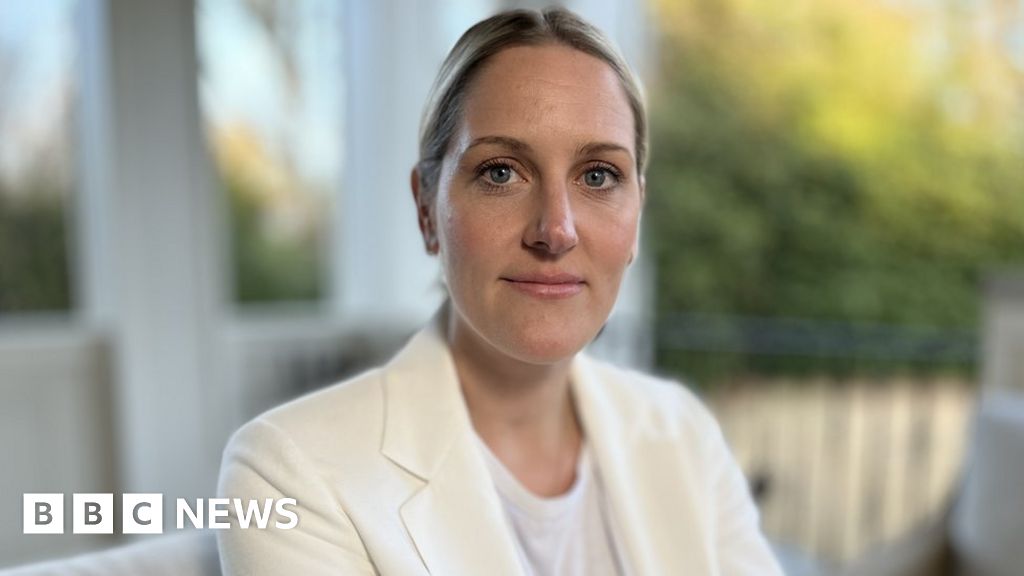
Alabama IVF ruling divides devout Christians: 'Fewer children will be born'
After Alabama rules that frozen embryos are children, some fertility patients pray that lawmakers find a solution.
www.bbc.com
Alabama IVF ruling divides devout Christians: 'Fewer children will be born'
9 hours ago
By Nomia Iqbal
BBC News in Birmingham, Alabama
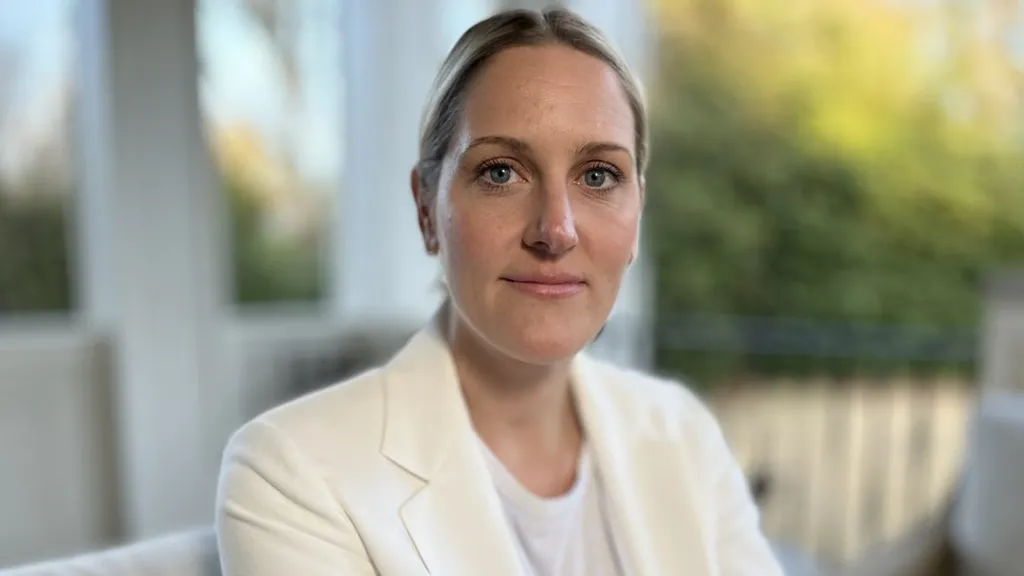
Margaret Boyce was days away from her first appointment for IVF when Alabama made its ruling
When Alabama's Supreme Court defined frozen embryos as children, the shock and confusion was immediate. Major hospitals pulled fertility services and would-be parents scrambled for clarity on what would happen next.
The debate over reproductive rights in America has long been driven, in part, by opposition to abortion from Christian groups - but this ruling has divided that movement and ignited debate about the role of theology in US lawmaking.

Margaret Boyce is soft-spoken, a private person, and certainly not - in her words - a "crier".
She had been taking fertility drugs for 10 months and was days away from her first appointment for in-vitro fertilisation (IVF) when the justices of Alabama's top court upended her life.
Their ruling, which prompted many fertility clinics to pause their work, has left her turning to the Bible daily for comfort.
The 32-year-old and her husband have a young boy but, second time round, she is experiencing unexplained infertility. Building a family has always been the dream.
"I'm one of three. I feel like it's the greatest gift to give your child a sibling," she said.
"The journey to becoming parents is different for every single couple - mentally, emotionally and financially," she added, welling up.
"This ruling has added more unnecessary anxiety to something that is already so hard."
For a devout Christian like Margaret, the ruling - given its consequences for what she sees clearly as a process to create life - is even more difficult to comprehend.
"God," she said, "tells you to go forth and be fruitful and multiply."
What is the ruling and what does it mean for fertility patients?
IVF is a difficult and lengthy treatment, involving the fertilisation of a woman's eggs with sperm in a lab to create a microscopic embryo. The fertilised embryo is then transferred into a woman's uterus, where it may create a pregnancy - but a successful outcome is not guaranteed.
Embryos are often frozen or eventually destroyed as part of IVF, which accounts for around 2% of US pregnancies.
The Alabama court ruled that an existing law - wrongful death of a minor - covers not just foetuses in the womb, but embryos held in a lab or storage facility too.
It did not explicitly restrict or ban IVF, but it has still created deep uncertainty for clinics and medical workers who handle embryos and fear prosecution. In recent days the office of the state's attorney general said he had "no intention" of pursuing criminal charges against IVF clinics - but one clinic told the BBC this statement lacked detail and did not quell their fears.

While the majority of the justices rooted their ruling in law, Chief Justice Tom Parker also had a higher authority in mind, repeatedly invoking scripture in explaining his decision.
The people of Alabama, he wrote in a concurring opinion, had adopted a "theologically-based view of the sanctity of life" in their state constitution.
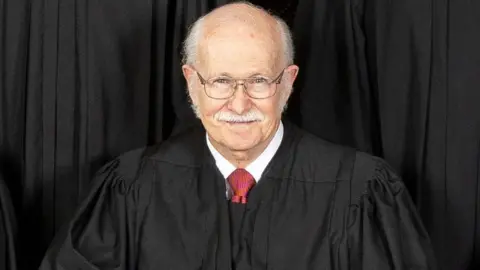
Chief Justice Tom Parker, of the Alabama Supreme Court
Delving into religious sources from classic Christian theologians like St. Thomas Aquinas and also a modern conservative Christian manifesto, he concluded that "even before birth, all human beings have the image of God, and their lives cannot be destroyed without effacing his glory".
Some anti-abortion groups celebrated the explicit use of scripture in Justice Parker's opinion to justify what for them was a momentous decision.
Tony Perkins, president of evangelical activist group the Family Research Council, described it as "a beautiful defence of life".
But the chief justice's theocratic justification has left Margaret puzzled. She doesn't believe in abortion but she also struggles to see a frozen embryo as a living person. For her, life begins with a heartbeat.
"Nobody understands more that an embryo is not a child," she said, before taking a pause, "than the person yearning for that embryo to be a child."
US courts do sometimes make decisions that seem to be based on religious premises, said Meredith Render, a professor at the University of Alabama School of Law.
But, she added, "rarely do you see it as explicitly stated" as in the chief justice's opinion.
Alabama IVF row an election-year political bombshell
Trump calls on Alabama to protect IVF treatment
The ruling was however "not an outlier" for a conservative court in a red state, said Kelly Baden, the vice president for public policy at the Guttmacher Institute, which tracks abortion legislation across the US.
"We do see that many elected officials and judges alike are often coming at this debate from a highly religious lens," she said.
While the Alabama state Supreme Court is not appointed by the US president, more than 200 judges were appointed by Donald Trump to federal courts during his four-year term, winning him lasting support from American evangelicals.
During his presidency he was able to nominate three new justices to the nine-member Supreme Court - all of whom sided with the majority in striking down the 1973 Roe v Wade decision that had guaranteed a federal right to abortion.
Since that decision in 2022 re-opened a national battle over reproductive rights, courts in Missouri have quoted Biblical teachings to justify restricting abortion rights and a Trump-appointed judge in Texas who previously worked for a Christian legal organisation tried to impose a nationwide ban on Mifepristone, a commonly used abortion pill.
While many Republican politicians comfortably agree with such rulings, restrictions on abortion imposed by conservative courts have proved a potent campaign issue for Democrats in recent elections, including the 2022 midterms.

Donald Trump has said he supports the availability of IVF treatment, calling on Alabama to find "an immediate solution"
The Alabama decision, made by Republican judges and affecting fertility treatments widely supported by the US public, went one step further, prompting immediate fear of a political backlash in a presidential election year.
Any sign of IVF being endangered could worsen the anger that's already cost Republicans since the fall of Roe v Wade, especially among suburban women and those who are uncomfortable with abortion bans.
Donald Trump himself, the clear frontrunner in the Republican nomination race, came out strongly in support of IVF, calling on Alabama lawmakers to preserve access to the treatment. His last remaining rival Nikki Haley at first appeared to support the ruling, but then backtracked.
Alabama IVF ruling a political gift for Democrats, headache for Republicans
"It's a win philosophically for the pro-life movement because it carries on the pro-life recognition of unborn life," said Eric Johnston, president of the Alabama Pro-Life Coalition.
"But you get into a very difficult situation, where you have this medical procedure that's accepted by most people, and then how do you deal with it? That's the dilemma.
"I agree with the opinion overall - I think it's well written opinion from the legal side and from the medical side," he added.
"But I think the pro-life community in general supports IVF, and I've known and worked with many people who have had children via IVF. And at the same time, they think abortion is wrong. This issue is so different from abortion, but it has to do with life."
What next for fertility patients in Alabama and beyond?
For patients in the deep-south state, the last week has been one of panicked phone calls to clinics, emails to local lawmakers and a rush by some to try and transfer frozen embryos out of the state.
Rodney Miller, 46, and his wife Mary Leah, 41, spent a decade trying to have children, before IVF allowed them to give birth to a set of twins 18 months ago, who were adopted as frozen embryos.
He said he "thanks the Lord for the advances in science and medicine" that made that possible.
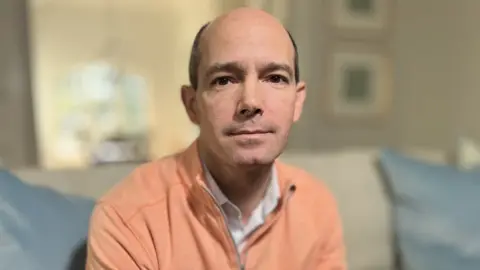
Rodney Miller warned the ruling could mean fewer children are born
The couple are now going through the process again, and waiting to see if two embryos transplanted this week will develop into a pregnancy.
"This is not a win [for the Christian right]," says Rodney, who works for Carrywell, an organisation that supports families through infertility.
"It's the classic case of you won the battle but lost the war. Fewer children will be born because of this unless things change.
"How did we become a state where if you want to terminate a pregnancy, you have to leave the state and if you want to initiate a pregnancy, via IVF you [also] have to leave the state?"
Whether the ruling in Alabama influences decisions elsewhere is an open question.
Foetal personhood bills, which enshrine the idea that life begins at conception, have been introduced in more than a dozen states. But these bills, while pushing the idea that a foetus or embryo is a person, don't explicitly relate that to the context of IVF, said Kelly Baden of the Guttmacher Institute.
The Alabama ruling - with its implications that go far beyond abortion access - does not therefore constitute a trend, she said.
Alabama family lawyer Ashleigh Meyer Dunham, who has used IVF herself, has been working with a large number of cases affected by the ruling. She said she was "terrified" that fertility patients in other states could eventually be affected.
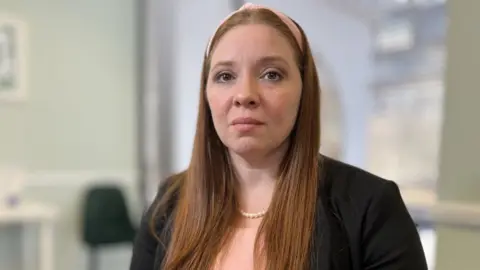
Ashleigh Meyer Dunham is worried that more states might make similar rulings
"I think the biggest concerns are that people elsewhere forget about us and they think, 'Oh they're just the conservative state, and they're all country bumpkins. Don't worry it will never happen here.'
"And the next thing you know, it is happening in other states that are ultra-conservative."
Because the Alabama ruling involves an interpretation of state, not federal law, it is unlikely to reach the US Supreme Court. Currently a bill is going through the state house in Alabama, introduced by Democrats, which would aim to effectively pause the ruling and allow treatments to resume as before.
Republicans are expected to propose their own bill. If they do, they have to find a way to balance a divided religious constituency, with some celebrating the court's ruling and others disturbed by its potential implications for IVF.
Margaret is praying that lawmakers find a solution.
"I'm not very outspoken, I keep myself to myself. But if any of my friends or family heard that I was sending emails to every single representative and senator, I think they would be shocked."
She takes a breath.
"But this has got me fired up. It is all I can think about now."
Alex Lederman contributed reporting from Alabama. Additional research from Kayla Epstein in New York.
Bleed The Freak
Superstar
Vote these folks in, then cry about what they said they would do.
I blame the voters.
I blame the voters.
mc_brew
#NotMyPresident
i was thinking the exact same thing...The fukk
